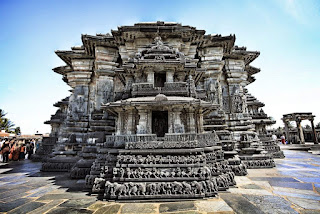Provisions for Cold Chain Industry in India
Cold chain is an infrastructure with the help of which temperature-control is done in a specific facility for the purpose of preserving several products. This method is used to store goods that are perishable in nature, such as agricultural produce, seafood and frozen food. Chemicals, pharmaceutical drugs and photographic films are also stocked in cold chain stores to increase their shelf life.
Cold chain industry is one of the most significant sectors in India as almost 30% of fruits and vegetables grown get wasted every year due to reasons like lack of awareness about storage and handling procedures, poor infrastructure and less cold storage capacity. Goods also get spoilt because of the unavailability of cold storage units in vicinity to farms and inadequate transportation system. It thereby becomes necessary to put greater focus on this industry in order to prevent such wastage also considering the fact that the situation in India is very inferior as compared to other nations.
The government of India has introduced a financial assistance of up to 50% subject to a ceiling of Rs 10 crore for people or groups interested in setting up cold storage units, as well as warehousing and logistics infrastructure. However it is important to fulfill certain conditions which include:
A minimal processing centre at the farm level that has facilities for weighing, sorting, grading waxing, pre-cooling and packing. The centre should also be equipped for normal storage, individual quick freezing (IQF), and controlled and modified atmosphere (CA / MA) storage.
The setup should have mobile pre-cooling vans and reefer trucks
The distribution aspect should be capable with packing techniques, CIP fog treatment, and IQF and blast freezing. It should additionally maintain CA / MA chambers / cold storage / variable humidity chambers.
Other than this the subsidy is even available for businesses that solely maintain the irradiation facility. The reason for this exception is the comprehensiveness of the facility.
It is also crucial to remember that this scheme is applicable for the cost incurred on plant and machinery and technical civil works. Also one needs to keep in mind that the final approval of the project depends on the decision made by an approval committee that is headed by the Secretary, Ministry of Food Processing Industry (MoFPI).
Some of the regulations attached to the sanction of such projects include:
Enterprise to have a Special Purpose Vehicle (SPV)
Each SPV to have a minimum of 3 business units
At least 26% of SPV equity to be held by the food processors within the SPV
The promoter should be from the food processing industry
At least 50 acres of land should be in the name of SPV. It is also necessary for the area of the storage unit to be surrounded by agriculture and food processing activities
Net worth of the shareholders of SPV should be a minimum of Rs. 50 crores. And the worth of food processors should be at least Rs. 10 crores.
Cold chain industry is one of the most significant sectors in India as almost 30% of fruits and vegetables grown get wasted every year due to reasons like lack of awareness about storage and handling procedures, poor infrastructure and less cold storage capacity. Goods also get spoilt because of the unavailability of cold storage units in vicinity to farms and inadequate transportation system. It thereby becomes necessary to put greater focus on this industry in order to prevent such wastage also considering the fact that the situation in India is very inferior as compared to other nations.
The government of India has introduced a financial assistance of up to 50% subject to a ceiling of Rs 10 crore for people or groups interested in setting up cold storage units, as well as warehousing and logistics infrastructure. However it is important to fulfill certain conditions which include:
A minimal processing centre at the farm level that has facilities for weighing, sorting, grading waxing, pre-cooling and packing. The centre should also be equipped for normal storage, individual quick freezing (IQF), and controlled and modified atmosphere (CA / MA) storage.
The setup should have mobile pre-cooling vans and reefer trucks
The distribution aspect should be capable with packing techniques, CIP fog treatment, and IQF and blast freezing. It should additionally maintain CA / MA chambers / cold storage / variable humidity chambers.
Other than this the subsidy is even available for businesses that solely maintain the irradiation facility. The reason for this exception is the comprehensiveness of the facility.
It is also crucial to remember that this scheme is applicable for the cost incurred on plant and machinery and technical civil works. Also one needs to keep in mind that the final approval of the project depends on the decision made by an approval committee that is headed by the Secretary, Ministry of Food Processing Industry (MoFPI).
Some of the regulations attached to the sanction of such projects include:
Enterprise to have a Special Purpose Vehicle (SPV)
Each SPV to have a minimum of 3 business units
At least 26% of SPV equity to be held by the food processors within the SPV
The promoter should be from the food processing industry
At least 50 acres of land should be in the name of SPV. It is also necessary for the area of the storage unit to be surrounded by agriculture and food processing activities
Net worth of the shareholders of SPV should be a minimum of Rs. 50 crores. And the worth of food processors should be at least Rs. 10 crores.



Comments
Post a Comment